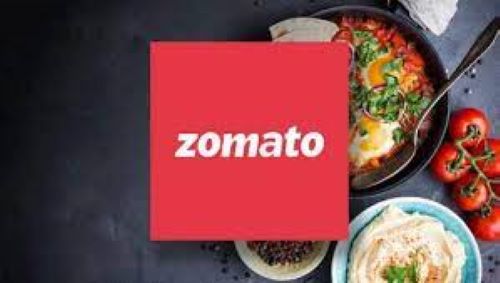A homegrown startup is on its way to becoming a decacorn next week. A moment worth celebrating. An exciting business that has changed the way we order & consume food is on its way to hit the bourses with an initial public offering of Rs 9375 crores.
Zomato is a technological platform that needs no introduction as most of us would have ordered on the App some time or other. This 2015 company promoted by Deepinder Goyal is creating quite a buzz as investors have got the opportunity to own a piece of a technology startup.
Zomato started with a service that rated and gave reviews on restaurants on its App. Later restaurants were listed and users could order from it and have it delivered to their doorstep. Subsequently, they added subscription services like Zomato Pro/Gold where for a fee, users can claim some discounts and freebie offers on select restaurants.
If you are old school, the tech startup model is a bit difficult to swallow. Young, energetic entrepreneurs think of a business idea, execute it flawlessly for years with no worries of breaking even, let alone make a profit.
As long as the idea is brilliant, the business opportunity scalable, and paying users are furiously added it doesn’t matter if they keep losing money. They have big daddies in Private equity funds/Angel investors with deep pockets who have their backs and will indulge them for years & years.
It makes sense when you look at the western companies like Google & Amazon who turned around and how. Having lost money for years, they achieved scale globally. The management figured out ways to monetize the users and business and these companies are now spitting out cash like slot machines after winning a jackpot.
Coming back to Zomato, the sheer scale and depth of reach is staggering. As of March 2021, the company was present in 525 cities in India, with close to 4 lacs of active restaurant listings. It serves about 4 crores users out of which almost 1 crore users order every month.
How does Zomato earn revenue?
Zomato lists restaurants on its platform for free, which gives them visibility. If they advertise on the platform Zomato gets a fee & to sign up for delivery, Zomato gets a sign-in fee as well as a cut on every order. The users also pay a fee to subscribe to services like Gold which is revenue. To deliver Zomato has tied up with several delivery partners. They can choose to charge them, which they are not doing so currently.
They have plans for other revenue-generating ideas like delivering groceries –“Grofers” (which they started and subsequently rolled back) and supplying fresh vegetables to restaurants through other ventures –“hyperpure”.
Although the revenue is good they offer discounts to customers to attract them to order via their platform. So despite the huge orders which are placed and fulfilled by Zomato, on every order, they incur a loss and is, therefore, a loss-making company.
Zomato reported losses of Rs 816.42 crores in FY21 from Rs 2,386 crores in FY20. It had reported Rs 1,010 crores loss for FY19. They are not even expecting to make profits in the near future. In its DRHP, it said they say it expects costs to increase over time. “Our losses will continue, given significant investments expected towards growing our business,”.
It is hard to value a loss-making company, the only metrics are belief in the management and understanding of the total market opportunity. Globally, the USA has Doordash & Grubhub, China – Meituan, Europe – Deliveroo. Except for the Chinese company, all are loss-making. India has a huge potential compared to other countries we spend only 10% of our food spent on restaurants compared to over 50% in the USA or China.
Only 9% of Indian internet users order food online compared to over 36% in the USA or 50% in China. The potential to make humongous profits is certainly there once the volume and a higher scale are achieved.
The question though is that at what price we are buying the stock to justify the optimism. At the current price of 76 per share, the valuation works out to $8.5billion which is quite rich. They have raised $250 million in Feb 2021 at a valuation of $ 5.4 billion. The earlier rounds are at a lower valuation.
Post the Ipo, if they make losses at the same rate they will have enough cash to burn for at least 7-8 years. They have a strong war chest of cash, but at the end of the day, they have to turn profitable to justify the faith of investors.
At this valuation, probably the earlier investors like Infoedge and the long list of foreign funds will exit making a handsome profit and let the public markets support Zomato.
There is also a huge existing competitor in Soft bank-backed Swiggy and new entrants like Amazon who may pose a challenge to Zomato. Restaurants are also resenting the strong-arm tactics and trying to create their own online delivery channels.
The sentiment in the stock market is close to euphoric and looks like the Zomato IPO will be oversubscribed handsomely. It may list also at a good gain as demand appears to be huge.
But looking at the valuation, the promoters have not left much juice for Indian investors in the IPO. Personally, I will wait for a correction to buy the stock.
No regrets to miss the dance and if the performance is spectacular, happy to clap from the sidelines.


Ranjana Patel
Thank you for this update. Understood very well given your comparison with the overseas market. Also there is tough competition ahead with Swiggy, We fast and Restaurant owners delivering to customers on direct orders to maintain their staff.
Sejal Goel
Very informative. Well written. Thanks for giving us variety of content with good depth.